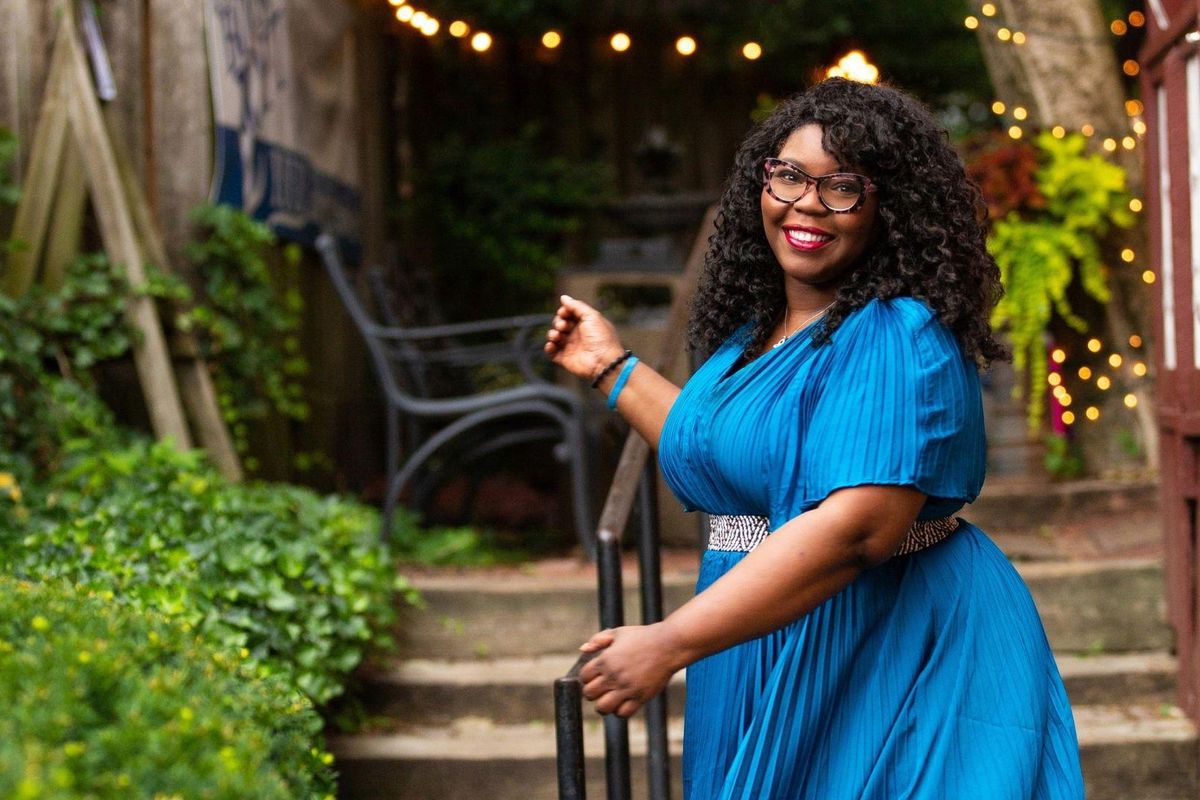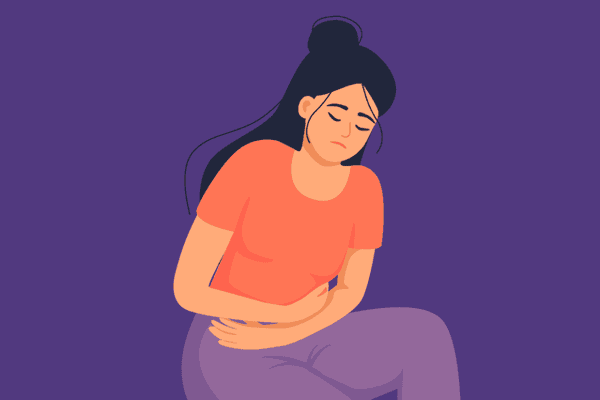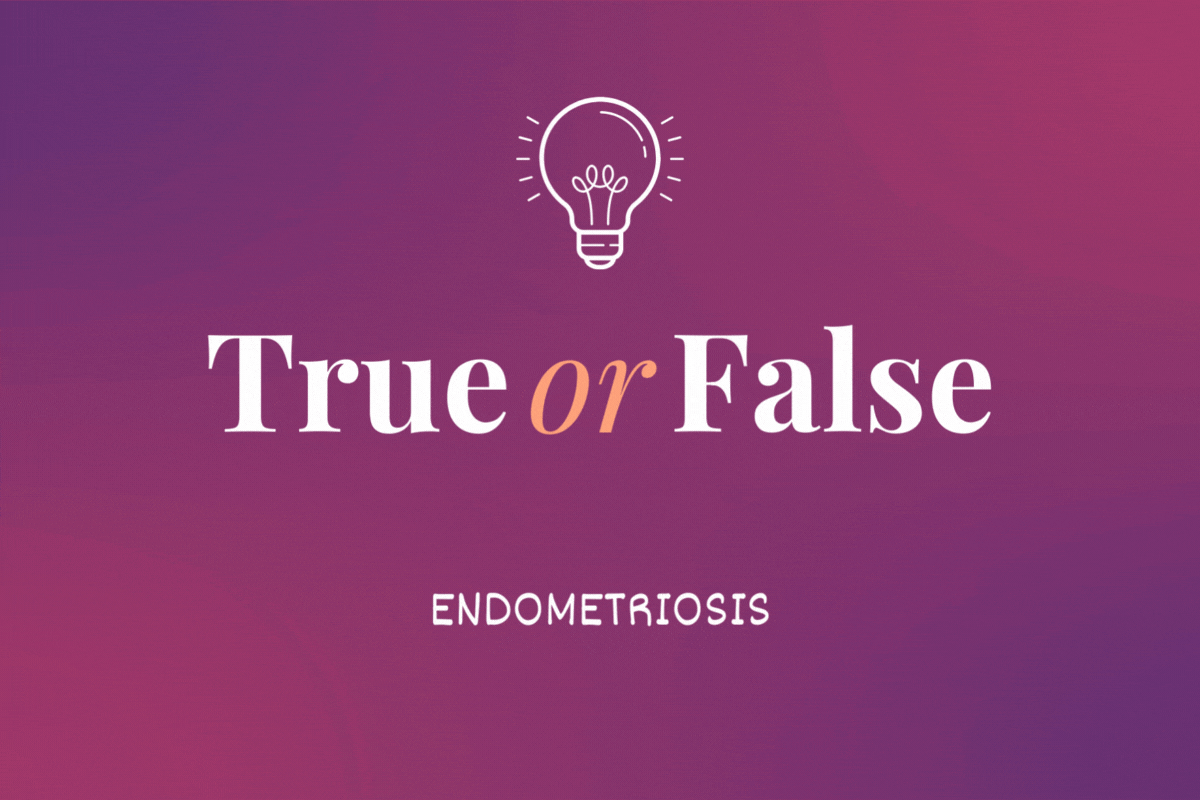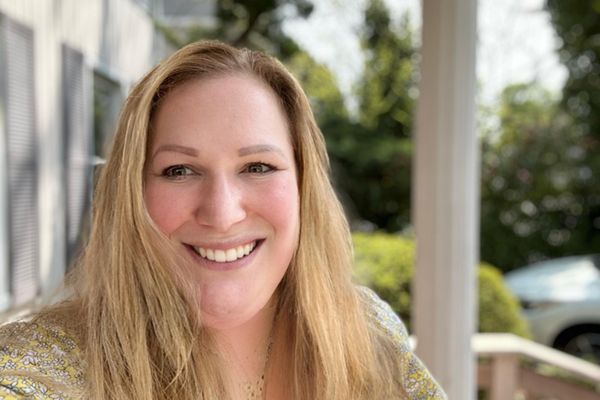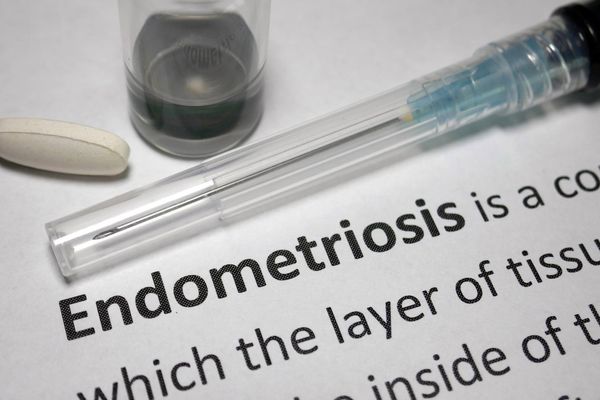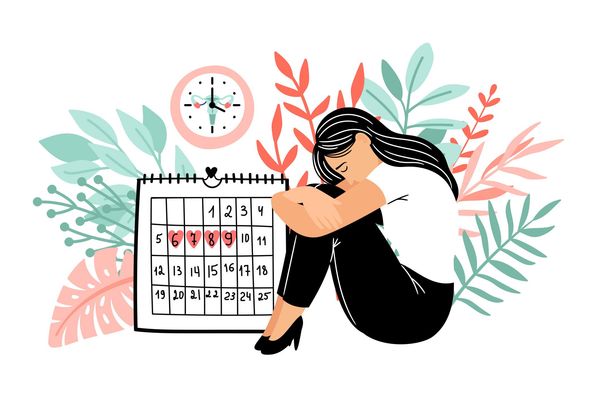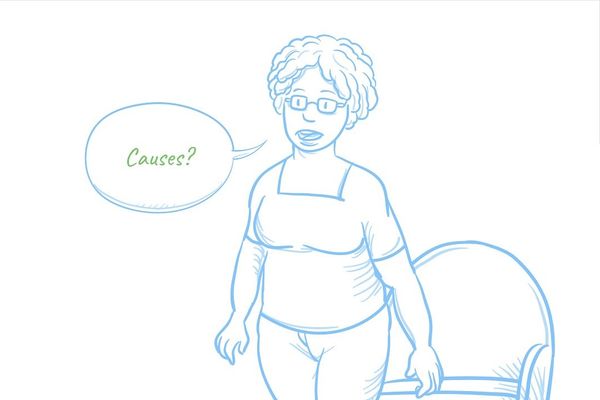As told to Marnie Goodfriend
Growing up in a strict, religious household, there was never a conversation around menstruation. I was 10 years old when I first got my period and was left in the dark wondering what was happening to my body. At age 13, girls and boys were split up for a half-day session at the vacation bible school I attended to learn about the way our bodies’ function and how to revere God within them. A hotline number where you could ask questions and receive pre-recorded answers was also distributed to us at my school. Between the two sources, I piecemealed together a basic understanding of menstruation.
In my late teens, I started having extremely heavy periods and such bad cramping that I needed to stay home from school for the first couple of days of my cycle because I was in so much pain. It was difficult to physically get out of bed because I was so weak. I spoke to one of my cool cousins — the one everyone asked about taboo topics — about my painful periods, and while it helped me to know I wasn't the only one going through this, we had very different experiences. The pain progressed from my early 20s onward.
When I saw my first OB-GYN in college, I said to her, “I don't know what to do about this. It seems like it's not right.” She told me it was normal for some women to have heavier cycles or more cramping or both and suggested that I take more over-the-counter pain medicine, drink water and rest.
What began as a general discomfort that didn’t seem to get any better escalated from very uncomfortable to, “Oh, God, please scoop everything out and throw it away.” My unknown condition affected my overall well-being. Things got to the point where a bumpy car ride and sitting in my chair in certain ways were extremely painful. There would be occasions where I would be so depleted and weak from bleeding so much, I would need to sleep 24-36 hours. Once it passed, I would go back to life as usual until it happened again.
Throughout the years, I sought out specialists because I had seen several OB-GYNs, and even with increased visits, none of them thought there was an issue. I saw two pelvic health specialists, a urogynecologist, a surgeon focused on pelvic disorders and a host of other doctors, but none of them ever suspected endometriosis. I’d heard of the disease, but I assumed experts in women’s pelvic health would immediately know if I had it.
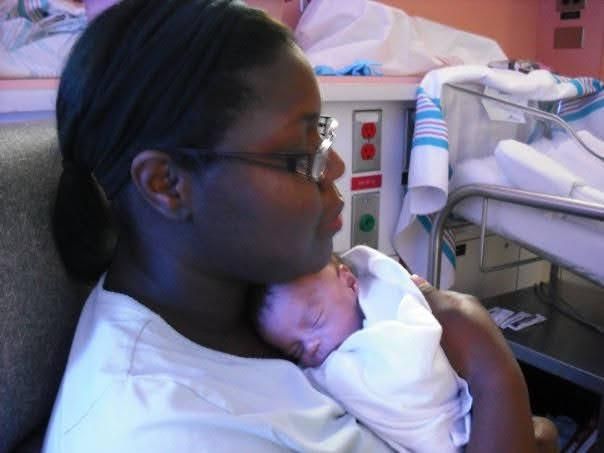
2009
I got married in 2003 and became pregnant with my son Ben six years later. After I had an emergency cesarean, the operating doctor showed me sonograms that revealed the presence of fibroids. “Your uterus should not look like this,” he told me and made a quip about my uterus looking like a bag of rocks.
I was never offered a treatment plan, so I relied on pain relievers, muscle relaxants and even tried vaginal steaming, all of which were somewhat helpful. I took a contraception injection for my heavy bleeding but had a bad reaction to one of the prescriptions. Instead, I took a high dose of an OTC anti-inflammatory medicine because my pain was out of control. I still played with my son, spent time with my husband, ran my business and managed to travel the world, all the while enduring a constant threshold of pain.
My sex life with my husband suffered, too. Having that kind of intimacy was shut down for entirely too long because it was extremely painful. The times that I could reach some level of physical comfort having sex, I’d still suffer for days or even weeks afterwards. I initiated an open conversation with him about how it felt for me. We tried different positions and methods but most of the time, we had to find non-penetrative sex alternatives. I’m lucky that he’s been so understanding and supportive of me through our almost 20 years of marriage.
There were never any conversations with doctors around family planning because endometriosis wasn’t on the radar. My pregnancy with Ben defied science, medicine and sexual issues stemming from my conditions. There's no reason why he should exist. I had taken an extra shot of a contraception injection to shorten my cycle and decrease the number of days I was in pain, which resulted in me having no period for six months — and that’s when I got pregnant. It's a blessing that we were able to have him.
A few years ago, I had a growth that looked like it could be cancerous. Through that, I stumbled upon a doctor who specializes in fibroids and endometriosis who asked me more questions and performed more thorough examinations. I ended up having an emergency hysterectomy and that’s when I found out that I have stage 3 endometriosis — three decades after my first symptoms appeared. And 11 years after the first mention, my fibroids were confirmed. My doctor was shocked at how severe my endometriosis was. He found tissue along the outer portions of my uterus, the fallopian tubes and the recto-uterine space between my uterus and my bladder. There was additional tissue in other places that they weren't able to remove. So, while my pain has lessened, I still have endo growing inside me, but the symptoms are tolerable.
For more than half my life, I sought out specialists and described my worsening symptoms, including constipation, abdominal pain that felt like it was pressing on my organs and pain around my bladder — and was dismissed every time. It’s frustrating to know that all the signs were there and documented by several doctors, but endo was never suspected. I never had a name for my condition and often questioned whether it was all in my head.
Having female doctors, doctors of color, ones that accepted insurance or having the financial means to visit others in the nice parts of my city didn't make a difference. I only got a diagnosis because I had a cancer scare and was in crisis. At that point, the doctors had to dig deeper and take my condition seriously because my life was at risk. Something could have been done to address my health and improve my quality of life and mental well-being, because it’s extremely stressful when you’re in a constant state of pain.
Today, I know to trust what my body is telling me and that it’s okay to feel frustrated and angry. My health and quality of life have greatly improved since my diagnosis — I just wish it had come sooner. There are doctors who can help you — it just may take a while to find one.
Resources
Endometriosis Foundation of America
- True or False: Endometriosis ›
- What You Don't Know About Endometriosis—But Should ... ›
- Debunking Common Endometriosis Myths - HealthyWomen ›
- Fast Facts: What You Need to Know About Endometriosis ... ›
- My 19-Year Journey to an Endometriosis Diagnosis - HealthyWomen ›
- Why can it be so difficult to get an endometriosis diagnosis ... ›
- Why Getting an Endometriosis Diagnosis Is Painfully Slow - HealthyWomen ›

